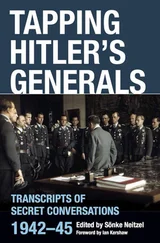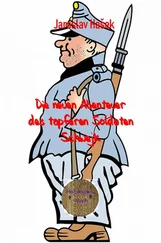Social proximity, perceived or actual, and the duties bound up with it constitute a central element in frames of reference. In the discipline of history, this element rarely comes into focus since, as a rule, sources rarely contain information about a person behaving in a specific way because he felt a sense of duty toward someone else. Further complicating the matter is the fact that social duties are not necessarily conscious. Sometimes they are so deeply internalized that they serve as points of orientation without an individual being aware of them. Psychologists call this phenomenon delegation.
When we pause to consider the one-dimensional reference frame of soldiers faced with military situations and the restriction of soldiers’ social environment to their comrades, we begin to see the significance of a sense of social duty. Whereas in civilian life, family, friends, schoolmates, and fellow students or workers represent a pluralistic corpus of diverse figures of reference, soldiers at the front essentially have only their brothers-in-arms. And they are all working within the same reference frame toward the same goal of fulfilling their military tasks while ensuring their own survival. Solidarity and cooperation are decisive factors in battle. Thus, the group always represents the strongest element of the frame of reference. Yet even when they are not engaged in active fighting, individual soldiers are highly dependent on the group. A soldier does not know for how long the war will go on or when he will get his next home leave or transfer, situations in which he will distance himself from the total group and rejoin a pluralistic community. Much has been written about the force of camaraderie. Along with its socializing functions, camaraderie also reveals antisocial elements when it is directed externally. The internal norms of the group determine standards of behavior, while the standards of the nonmilitary world are considered subordinate and insignificant.
In his role as comrade, an individual soldier does not just become a voluntary or involuntary part of a group, forfeiting autonomy in the process. He also receives something in return: security, dependability, support, and recognition. From this perspective, camaraderie entails not only a maximum concentration of social duty, but also the relief from duties vis-à-vis all other normally significant aspects of the world. The soldier’s frame of reference and, in particular, the soldier’s practical everyday existence are highly determined by this give-and-take. In the practical situation of war, camaraderie is no longer a tool of socialization that brings some duties while relieving others. A group of comrades becomes a literal unit of survival, creating binding forces that would never have such power under normal circumstances. This is not a feature unique to National Socialism. In their wide-ranging study of Wehrmacht soldiers, Edward A. Shils and Morris Janowitz also emphasized the central importance of camaraderie as the primary unit of individual orientation and interpretation in wartime. {29} 29 Edward A. Shils and Morris Janowitz, “Cohesion and Disintegration in the Wehrmacht in World War II,” Public Opinion Quarterly 12, no. 2 (Summer 1948).
Camaraderie is less about a specific view of the world or ideology, than orientation. Many individuals feel emotionally more at home with their comrades than with family members, who do not share their experience as soldiers and thus cannot understand them. Camaraderie is by no means a romanticized military myth. It is a social environment whose importance outstrips all rival environments.
In 1973, scholars at Princeton University carried out a remarkable experiment. A group of theology students were told to compose a short essay on the parable of the Good Samaritan and then take it, upon command, to a specific campus building, where it would be recorded for radio. The students waited around for that specific instruction, but suddenly an authority figure would appear and say: “Are you still here? You should have been over at the building a long time ago. Maybe the assistant is still waiting! You better hurry!” Each of the students duly hastened off to turn in his essay. In front of the entrance to the building in question, they found a seemingly helpless person lying on the ground, coughing and moaning with his eyes closed. There was no way to enter the building without noticing this person, apparently in the greatest of need. How did the theology students react? Only sixteen of forty subjects tried to help; the rest hurried on past the sufferer in order to keep their appointment. Even more confusingly, post-experiment interviews suggested that many of the subjects who had not helped claimed not even to have noticed that a fellow human being was in distress, despite practically stumbling over him. {30} 30 Morton Hunt, Das Rätsel der Nächstenliebe (Frankfurt: Suhrkamp Taschenbuch, 1988), p. 77.
The experiment shows that people have to perceive before they can act. When we work toward a goal with extreme concentration, we simply shut out things unrelated to that goal. Focus of this sort does not admit moral questioning. It is the product of a necessary and almost always functioning economy of action that seeks to avoid what is nonessential. There is a vast gap between what people believe about their own moral values, convictions, and commitments and their actual behavior. In concrete situations that demand decisions and action, the decisive factors rarely have much to do with ethical considerations and moral tenets. What matters is the achievement of a goal or the fulfillment of a task. The central question is what is the best and most efficient way to get things done. The theology students were not primarily concerned with the ethos of helping out one’s fellow man, but with the speed they were supposed to keep up to fulfill a task. The inventors of the Good Samaritan experiment, the psychologists John Darley and C. Daniel Batson, concluded that people who were not in a hurry would likely stop and try to offer assistance. Those in a hurry, on the other hand, would continue to hurry even if the task was to deliver a speech on the parable of the Good Samaritan. {31} 31 Cited in ibid.
A situation itself seems to have much more influence on what people do than the personal characteristics that get them into a certain situation. That conclusion is supported by the established fact that in the Third Reich, people didn’t need to be anti-Semitic to murder Jews or otherwise altruistic to rescue them. In both cases, it was enough for people to find themselves in a social situation in which one or the other course of action seemed called for. Once a given decision has been made, though, subsequent ones follow the path previously trodden. If an individual had taken part in one mass execution, the probability rose that he would participate in a second or third one. The same was true for people who offered assistance.
Of course, not everything people perceive and do can be reduced to external references. It goes without saying that different individuals bring various tendencies of perception, social interpretive paradigms, age-specific experiences, and special talents, weaknesses, and personal preferences with them into situations that call for interpretation and response. With this in mind, social situations always represent temporary structures that can be used and expanded with various degrees of freedom. A lot depends on the individual. It is certain that the grotesquely simplified relations of power in concentration camps or during the mass executions tended to appeal to violently inclined members of the SS, the reserve police corps, and Wehrmacht soldiers, offering them an opportunity to live out their sadistic desires, while calling forth repulsion in more sensitive, nonviolent people. It makes a big difference what sort of personality structure is confronted with what sort of situation. At the same time, though, we should not overestimate the significance of personal difference. As the Holocaust and the Nazi war of annihilation show, the vast majority of civilians, as well as soldiers, SS men, and police officers, behaved in discriminatory, violent, and inhumane fashion if the situation at hand seemed to encourage and promote such behavior. Only a tiny minority proved capable of humane resistance. According to the standards of the time, humane behavior was deviant, and brutality was conformist. For that reason, the entire collection of events known as the “Third Reich” and the violence it produced can be seen as a gigantic experiment, showing what sane people who see themselves as good are capable of if they consider something to be appropriate, sensible, or correct. The proportion of people who were psychologically inclined toward violence, discrimination, and excess totaled, as it does in all other social contexts as well, 5 to 10 percent.
Читать дальше












